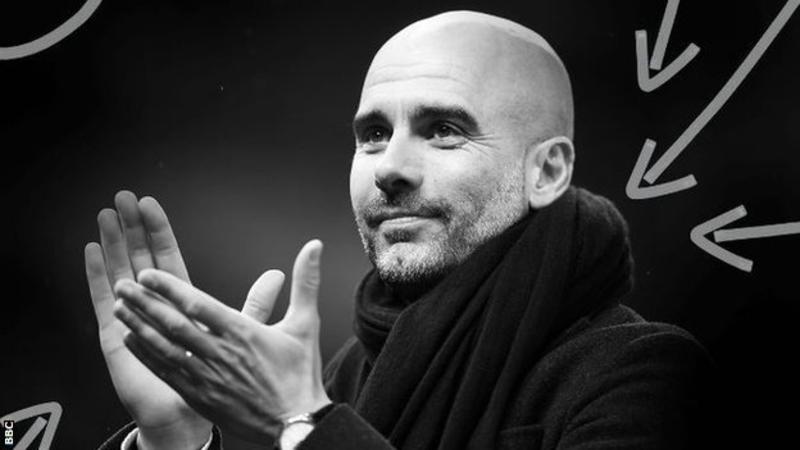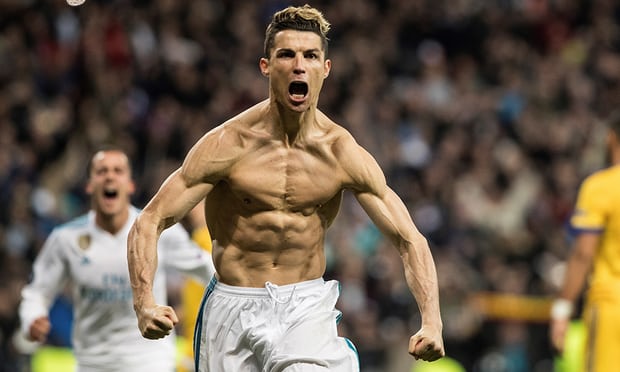
by Gary Reinecke | Apr 29, 2018 | Leader Development, Personal Development |
Very seldom do I watch the footage after a football match; but when Liverpool plays I enjoy watching Jurgen Klopp celebrate, encourage and, if necessary, console his players. His self-awareness sets him apart from other managers. This is why he is considered one of the most emotionally intelligent coaches in the game today.
Klopp is one of the most successful and sought-after football managers in the world today. He coaches Liverpool FC of the English Premier League. He is also a Christian and willing to share his views about faith – read more here.
In a BT Sport interview, “The Man Behind The Manager”, Klopp was asked: “How would you describe your style of leadership?”
His response was spot on: “Giving the right advice in the right moment.” He also expressed his desire to manage each of his players differently by remaining “close to the human being”. And finally, his commitment to helping the club, fan and players succeed by giving everything of himself “freely and expect others to do the same”.
Klopp’s ability to manage and get the best from his players is exceptional. He admits that he is not the smartest (or has the highest IQ); however, his EQ sets him apart and is legendary in the highly competitive, highly stressful and highly compensated sport of football at the highest level.
In the book Emotional Intelligence 2.0, Travis Bradberry and Jean Greaves break down EQ into four key areas:
- Self-Awareness: is your ability to accurately perceive your own emotions in the moment and understand your tendencies across situations.
- Self-Management: is your ability to use your emotions to stay flexible and direct your behavior positively.
- Social Awareness: is your ability to accurately pick up on emotions in other people and understand what is really going on with them.
- Relationship Management: is your ability to use your awareness of your own emotions and those of others to manage interactions successfully.
Consider the people you are currently coaching and developing, assess their EQ using the 3-point scale below:
- Low = unaware
- Medium = somewhat aware
- High = always aware
Now consider people you want or should be developing, using the same scale.
What new insights do you have?
If you would like to process this further, please e-mail us to schedule a complimentary, 25 minute coaching conversation with Gary Reinecke.

by Gary Reinecke | Apr 22, 2018 | Uncategorized |
“Humility is the single greatest and most indispensable attribute of being a team player.”
Patrick Lencioni
Listen to this interview with the author by Donald Miller – click here
What are the indications of humility?
This is an interesting list to brainstorm:
- Does not speak about themselves.
- Gives others the spotlight.
- Deflects attention.
I know the list can go on and on but these are some of the traits that come to mind.
In the football universe, Messi sets the standard. Arguably the best player on the planet. Think Michael Jordan, Tom Brady or Tiger Woods in terms of achievements – the persona he exudes is one of humility. I encourage you to watch this 8 minute video to see how Messi handles the attention he draws from fans around the world.
Consider the people you are currently developing, assess each according to their humility using a 3-point scale
- Low = always puts herself/himself before others
- Medium = willing to put others before herself/himself
- High = always puts others before herself/himself
Now consider people you want or should be developing, using the same scale.
What new insights do you have?
If you would like to process this further, please e-mail us to schedule a complimentary, 25 minute coaching conversation with Gary Reinecke.

by Gary Reinecke | Apr 18, 2018 | Coach Training, Leader Development, Personal Development, Uncategorized |
Last week I introduced three virtues of a coachable person based on Patrick Lencioni’s book entitled: The Ideal Team Player. The three virtues: Hungry-Humble-Smart are also wonderful traits of a coachable person. I will address each of these in the upcoming blogs beginning with the trait of a “hungry” person.
In case you missed it, Pep Guardiola led Manchester City to the English Premiership title last weekend. To no one’s surprise, the club completed the feat with 6 games remaining in the season. This gives them the chance to accumulate the most points ever during the course of a single season – and chances are, “Pep” will see his team reach that goal.
Beyond his desire to win is a relentless thirst to learn and be a student of the game so that he can find new ways to surprise his opponents. He is regarded as THE BEST manager in the game of football (soccer) today – and perhaps of all time. *He was the third of four children born to Valenti Guardiola, a bricklayer, and Dolors Sala and raised in a working-class home with solid family principles and a clear sense of dignity. His unquenchable thirst drives him to succeed, challenge his players and feed the wild beast within.
*If you are interested in reading more about Pep Guardiola here is the link to an article highlighting his journey that created his incredible appetite and work ethic.
When identifying leaders to coach, having a hunger to learn, continually improve and achieve, is critical to a fruitful coaching relationship. Nothing is more inspiring than a person who has the desire, that drive and grit to grind it out when hard work is required. This hunger will drive the agenda for many a coaching relationship.
Consider the people you are currently developing, assess each by their willingness to word hard using a 3-point scale
- Low = lacks drive
- Medium = solid work ethic
- High = crushes it at every opportunity
Now consider people you want, or should be developing, using the same scale.
What new insights do you have?
If you would like to process this further, please e-mail office@infocusnet.org to schedule a complimentary, 25 minute coaching conversation with Gary Reinecke.

by Gary Reinecke | Apr 11, 2018 | Uncategorized |
Cristiano Ronaldo is a lot of things.
This week Real Madrid played Juventes in the second leg of a home and away series. The caption under the photo reads: Cristiano Ronaldo shows what he is made of after scoring the penalty that saved Real Madrid from Champions League humiliation against Juventus. The man is a beast on the football (soccer) pitch!
Ronaldo is a champion, he loves the BIG stage, he is THE MAN when everything is on the line. In addition, he is seldom criticized for his humility. I’ve found that humility is one of the key qualities of a coachable person in the arenas you and I minister.
What makes a person coachable? I’ve been asked this question and have thought about a concise response. Most of the time, I vett potential leaders that I am considering to coach using my intuition. Here are some of the issues I consider:
- Like-minded vision
- Like-minded values
- Like-minded expectations for coaching
- Alignment in the “x” factor(s)
- And the all important – chemistry!
In general, I believe a coachable person is one who is willing to work hard. A coachable person is teachable, that is, they desire to learn and grow. A coachable person possesses a high degree of self-awareness.
Do you coach leaders within local churches?
Do you coach leaders in church planting networks?
Do you coach leaders in mission societies?
I’ve coached leaders in the venues mentioned above at about every imaginable position, and for years I’ve had the good fortune of attracting people who fit the description of a coachable person above. When I hear leaders struggle with people they lead, supervise and develop; I’ve discovered that the three virtues Patrick Lencioni identifies in The Ideal Team Player provides a great framework to vett strong team members, employees and people you want to coach. Let me suggest the three virtues, along with a key question that I use to help vett potential leaders to coach.
Three virtues of a coachable person:
- Hungry – Is this person a hard worker?
- Humble – Is this person eager to learn?
- Smart – Is this person emotionally self-aware?
Of course, if you are leading a team and you have inherited the members of the team, you must work with the personnel you have. As a church planter, you may not have the luxury to recruit the ideal team player; but this gives you an idea of the qualities to look for. Likewise, when people approach you to coach them, these virtues along with the clarifying question can guide your decision-making process.
The three qualities were identified in The Ideal Team Player by Patrick Lencioni; and provide a helpful description of who would make a good candidate for you to coach.

by Gary Reinecke | Apr 5, 2018 | Church Growth, Leader Development, Personal Development |
Not too long ago I was asked to recommend a book to help churches design a leadership pipeline. A “leadership pipeline” is a leadership development process that helps local churches establish, grow and reproduce leaders. At that point in time, when I searched my mental files, I came up short. Today, I can answer that question with a resounding “yes”.
“The Leadership Difference”, by Robert Logan, offers principles for the leader who’s vision is to develop other leaders. Reflection questions with related resources enable reproducing leaders to create their unique development process.
When discussing leadership development with other leaders, I’ve discovered the lines between discipleship and leadership are often blurry. In fact, some would argue, discipleship = leadership development. There is some truth to that statement. Logan makes the case and captures the essence of that dynamic; the relationship is one of interdependence:
Discipleship is the often less visible but absolutely essential foundation upon which leadership must rest. Without it, everything else collapses (p.19)
But there are also differences. The author makes a clear distinction between Discipleship Competencies and Leadership Competencies:
Discipleship Competencies:
- Experiencing God
- Spiritual Responsiveness
- Sacrificial Service
- Generous Living
- Disciplemaking
- Personal Transformation
- Authentic Relationships
- Community Transformation (p.21)
Leadership Competencies:
- Personal Development
- Developing Leaders
- Leading Teams
- Organizational Development
- Communication Skills
- Pastoral Skills (p.26-27)
This alone is worth the price of the book. A more complete list is presented in Appendix A and B. Clarifying the two creates a clear distinction. This allows a leader to design her/his own leadership pipeline, with the end in mind.
Logan is one of the leading thinkers in church planting and leader development today. His extensive experience as a coach, consultant and trainer in 30+ countries, spans four decades and gives him a broad base from which to draw. Logan is constantly asking God: “What’s next for the church to grow and reproduce healthy disciples and leaders?”
I highly recommend “The Leadership Difference” when you are being asked to build a leadership pipeline in the church or ministry you serve.




